
The Marriage of Mr. Mississippi is a 1961 Swiss-West German comedy film directed and co-written by Kurt Hoffmann and starring O.E. Hasse, Johanna von Koczian and Martin Held. It is based on the 1952 play of the same name by Friedrich Dürrenmatt. It was entered into the 11th Berlin International Film Festival. The film was shot at the Spandau Studios in Berlin, and on location in Zurich. The sets were designed by the art directors Hertha Hareiter and Otto Pischinger.

Johanna von Koczian was a German actress. She grew up in Salzburg where Gustaf Gründgens offered her a role at the 1951 Salzburg Festival, and she played at several German theatres. She had her first film role in the 1957 film Victor and Victoria, and her breakthrough a year later in Wir Wunderkinder which earned her a German Film Award. She was named "the German Audrey Hepburn" then. She appeared in many films, also on television, became popular again as a singer with the 1977 hit "Das bißchen Haushalt", presented television series and authored books for children and youths. She returned to the stage for comedies such as Glorious!, performed with great success in Berlin in 2010.
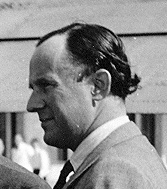
Axel Eugen Alexander von Oesterreich, better known as Axel von Ambesser, was a German playwright, actor and film director.
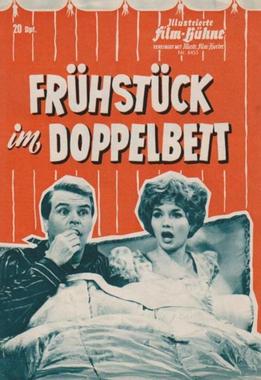
Breakfast in Bed is a 1963 German comedy film directed by Axel von Ambesser and starring O.W. Fischer, Liselotte Pulver and Ann Smyrner.

The Three from the Filling Station is a 1955 West German musical film directed by Hans Wolff and starring Adrian Hoven, Walter Müller and Walter Giller. It was shot at the Tempelhof Studios in West Berlin and on location around the city. The film's sets were designed by the art directors Kurt Herlth and Hans Kuhnert.

Polish Blood is a 1934 musical film directed by Carl Lamac and starring Anny Ondra, Hans Moser and Iván Petrovich. It is an operetta film, based on a work by the Polish-born writer Leo Stein. The film's sets were designed by art directors Bohumil Hes and Stepán Kopecký. A separate Czech language version was also released.

Maria the Maid is a 1936 German drama film directed by Veit Harlan and starring Hilde Körber, Hilde Hildebrand, and Alfred Abel. It is based upon Die Kindsmagd, a novella by Walter Harlan. It was shot at the Johannisthal Studios in Berlin. The film's sets were designed by the art directors Erich Grave and Hans Minzloff.

Dancing Stars is a 1952 West German musical comedy film directed by Géza von Cziffra and starring Germaine Damar, Georg Thomalla and Fita Benkhoff. It was shot at the Wandsbek Studios of Real Film in Hamburg. The film's sets were designed by the art directors Albrecht Becker and Herbert Kirchhoff.

Our House in Cameroon is a 1961 West German adventure film directed by Alfred Vohrer and starring Johanna von Koczian, Götz George and Hans Söhnker.

Street of Temptation is a 1962 West German drama film directed by Imo Moszkowicz and starring Mario Adorf, Karin Baal and Johanna von Koczian.

Three Girls Spinning is a 1950 West German comedy film directed by Carl Froelich and starring Albrecht Schoenhals, Adelheid Seeck and Axel von Ambesser. It was shot at the Tempelhof Studios in Berlin. The film's sets were designed by the art director Erich Kettelhut.

Dreaming Days is a 1951 French-West German drama film directed by Emil-Edwin Reinert and starring Aglaja Schmid, O.W. Fischer and Axel von Ambesser. The film is based on a short story by Vicki Baum. It was shot at the Bavaria Studios in Munich and the Joinville Studios in Paris. The film's sets were designed by the art director Georges Wakhévitch. Location shooting took place around Mittenwald, Lautersee, Garmisch-Partenkirchen and Kreuzeck. A separate French version, The Red Needle, was also made, with different actors.

People in the Net, also known as Unwilling Agent, is a 1959 West German Cold War spy film directed by Franz Peter Wirth and starring Hansjörg Felmy, Johanna von Koczian and Hannes Messemer.

The King's Prisoner is a 1935 German historical comedy film directed by Carl Boese and starring Michael Bohnen, Paul Kemp, and Susi Lanner. It is based around the development of Meissen porcelain during the eighteenth century, particularly the role of the alchemist Johann Friedrich Böttger. It was shot at the Bavaria Studios in Munich. The film's sets were designed by the art director Max Seefelder.
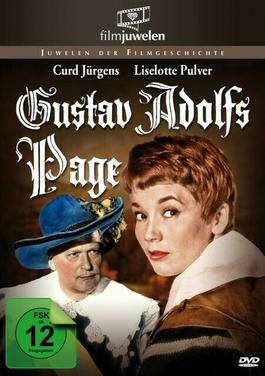
Gustav Adolf's Page is a 1960 German-Austrian historical adventure film directed by Rolf Hansen and starring Liselotte Pulver, Curd Jürgens, and Ellen Schwiers. It is based on the 1882 novel of the same title by Conrad Ferdinand Meyer.

Stage Fright or Lamp Fever is a 1960 West German drama film directed by Kurt Hoffmann and starring Dunja Movar, Bernhard Wicki and Antje Weisgerber.

Agatha, Stop That Murdering! is a 1960 West German comedy crime film directed by Dietrich Haugk and starring Johanna von Koczian, Klausjürgen Wussow and Elisabeth Flickenschildt. It is a parody both of the ongoing film series of Edgar Wallace adaptations and the traditions of the mystery novels of Agatha Christie.
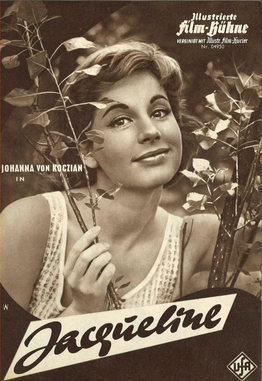
Jacqueline is a 1959 West German comedy film directed by Wolfgang Liebeneiner and starring Johanna von Koczian, Walther Reyer and Götz George. George won a German Film Award for best newcomer for his performance.

Ways to a Good Marriage is a 1933 German drama film directed by Adolf Trotz and starring Olga Chekhova, Alfred Abel and Hilde Hildebrand. It was shot at the EFA Studios in Halensee in Berlin. The film's sets were designed by the art directors Heinz Fenchel and Botho Hoefer. The film was based on the ideas of the sexologist Theodore H. Van de Velde and was in the tradition of the enlightenment films of the Weimar Republic. Although his work had already been forbidden by the new Nazi regime, it was not formally banned until 1937 despite protests by Nazi students in Kiel who were successful in having the film pulled from cinemas there.
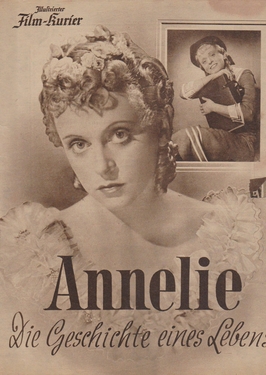
Annelie is a 1941 German historical comedy drama film directed by Josef von Báky and starring Luise Ullrich, Werner Krauss and Käthe Haack. It was shot at the Babelsberg and Tempelhof Studios in Berlin and on location around Königsberg in East Prussia. The film's sets were designed by the art director Emil Hasler. It was based on a play of the same title by Walter Lieck. It was screened at the 1941 Venice Film Festival.




















